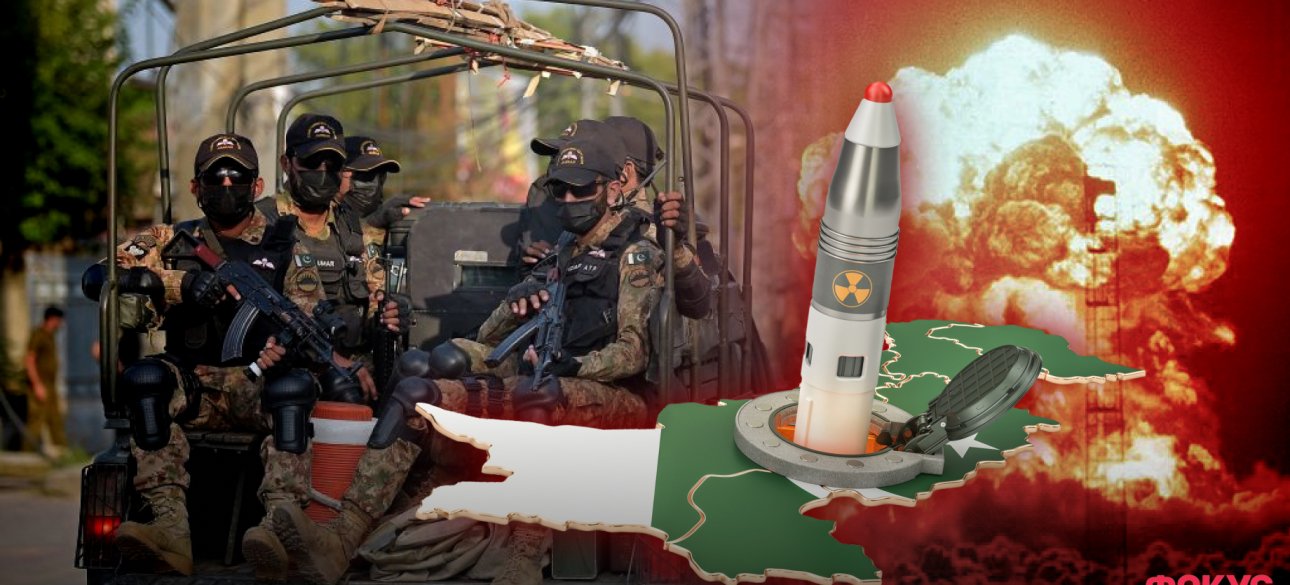
 By Eliza Popova
By Eliza Popova
In general, wars between India and Pakistan are reminiscent of the wars of Israel and Arab countries. The whole thing is in a common British colonial past and the "skills" of the British to lay historical "mines of slow action. " For example, a declaration or letter of Balfur, written by the British minister of the leader of the Jewish community of Britain, Walter Rothschild in 1917, which guaranteed the creation of a Jewish state.
What can be welcomed if the British agreed with such promises with the Arabs. What Britain then made promises to create a Palestinian state at that time. The reason is clear - organizing the rebellion of the Arabs against the dominance of the Ottoman Empire during the First World War (the movie "Lawrence of Arabian" everyone remembers). By the way, the Balfur Declaration for Israel has no less legitimacy than the UN resolution on the creation of "two states", Jewish and Palestinian. Of course, not.
It is not just that the historian of Air Schlaim called Balfur's declaration of "original sin" of British diplomacy in the Middle East, which has led to a further conflict for almost 80 years. Or the Durand Line is the border between Afghanistan and Pakistan passing through the "tribes". This is the basis of another regional conflict. The border between India and Pakistan "draws" Siril Redcliffe, Lord-Duddy of the British Empire. I am far from the idea that Britain was so sinister.
Most likely, here we see a mix consisting of a desire to maintain our influence in the future, the ability to moderate conflicts in the former "intelligent territories" and the banal ignorance of the local specificity of the East within Western orientism, as Said describes it.
The question is different: on the basis of which the right Britain in general assumed the mission of the "burden of the white man" and got the right to "draw" other people's borders far in the East? The consequences of this colonial policy are also indicated in the 21st century. Already the British Empire rested in God, and the wars on its former periphery are going and going.
What is the similarity of the confrontation between India and Pakistan with the Israeli conflict and a number of Arab countries? The first wave of confrontation - immediately after the Second World War. Attempting to view borders. The second wave is the 60s. Increasing the intensity of conflict. And the bloodiest wars-in the 1970s: in Israel-the war of the Judgment Day of 1973, in India-the war with Pakistan 1971, when the province of Eastern Pakistan became the Republic of Bangladesh.
The defeat of Pakistan and Arab countries. Then-the creation of nuclear weapons in Israel and in the India-Pakistan couple, which significantly reduced the degree of confrontation. The following is a series of less intense conflicts, the transition of confrontation in proxy format using local resistance forces in disputed territories: in Palestine and Kashmir. Depending on the side of the confrontation, these forces are called either terrorists or insurgents.
In the 21st century, there is a risk of a new large -scale conflict, with the only difference being that Iran with ambitions on the creation of nuclear weapons and Turkey came to the Middle East. I described the geopolitical prerequisites for the present war of India and Pakistan in my articles. On the eve of Pakistan's active consultations with China and India from the United States took place.
It is noteworthy that many of our orientalists did not believe in the beginning of this war, but in vain. I wrote in detail about the risk of asymmetric confrontation between China and the United States on the Hindustan Peninsula.
Now the key intrigue will be the Kashmir War format or full-scale Indo-Pakistani? Will Pakistan try to take control of Kashmir and India, for example, Lahore? Will everything be limited to collisions at the border? What is carrying in her case to Moscow, Xi Jinping? Well, while the world is on fire, gold beats another price records. The world recession has become still closer. The author expresses a personal opinion that may not coincide with the editorial position.










All rights reserved IN-Ukraine.info - 2022